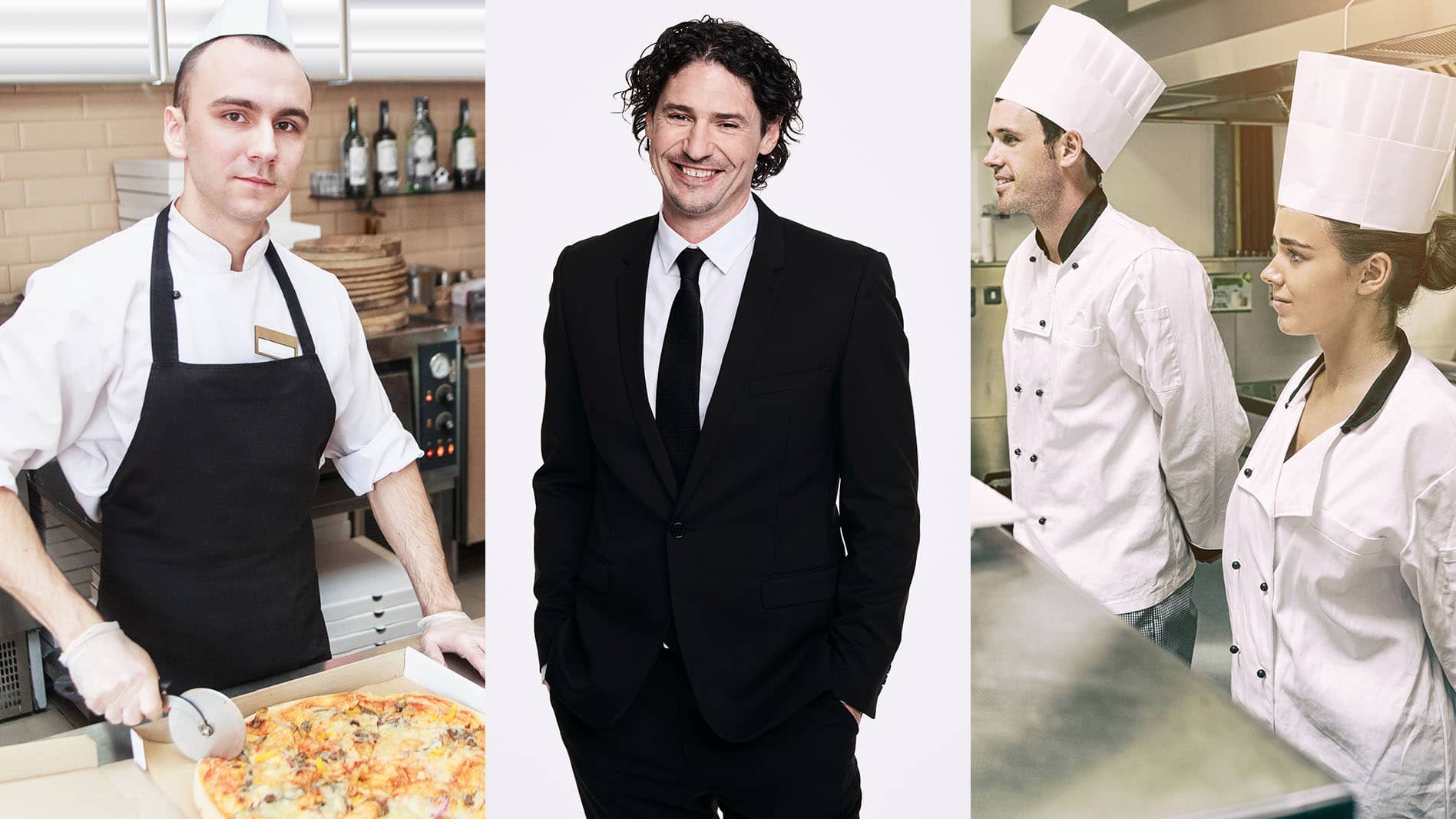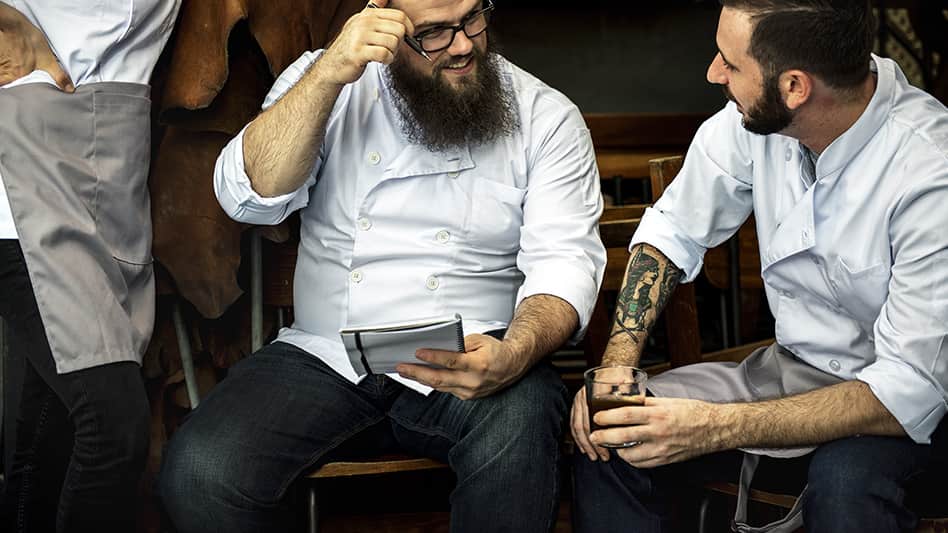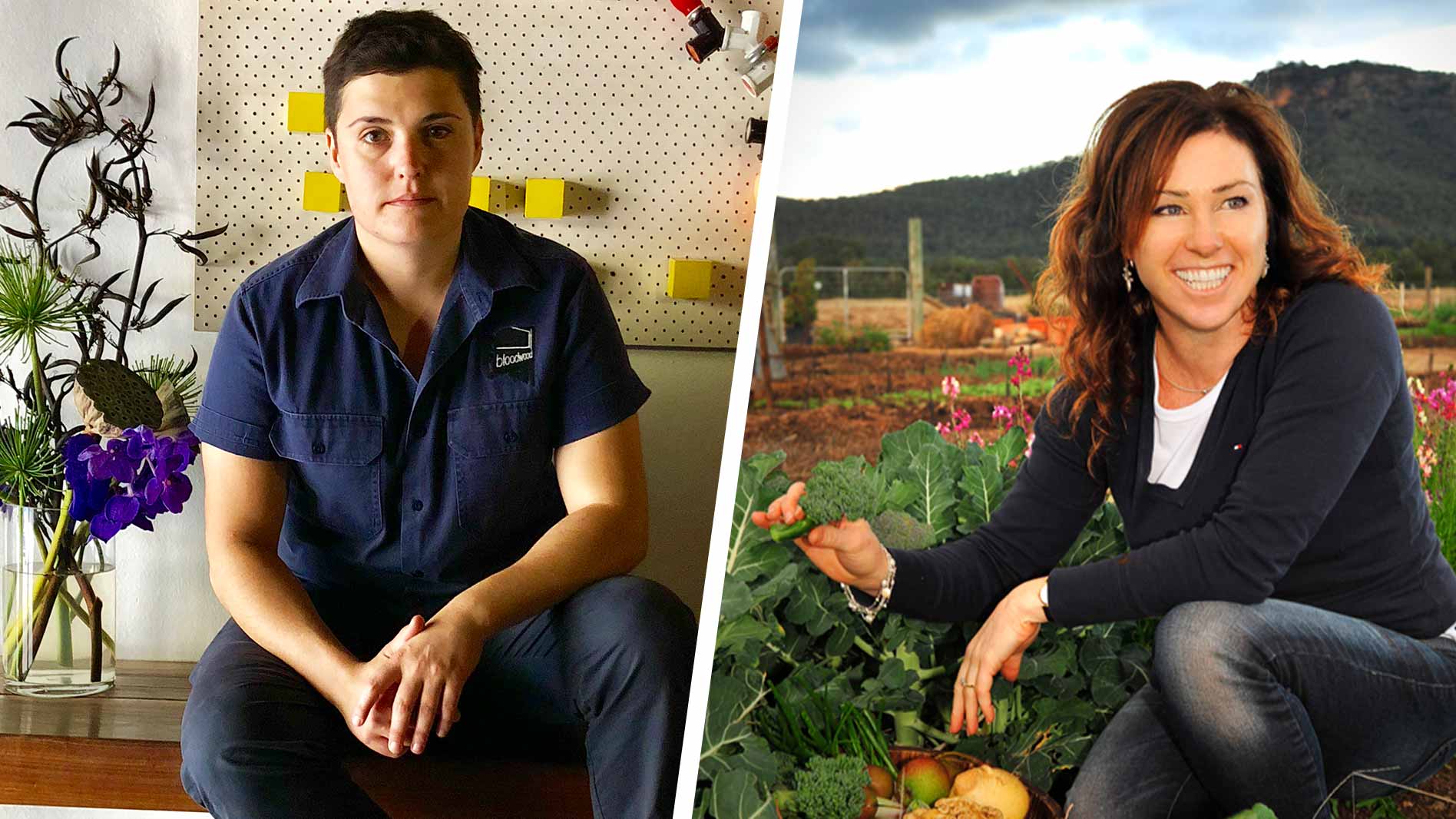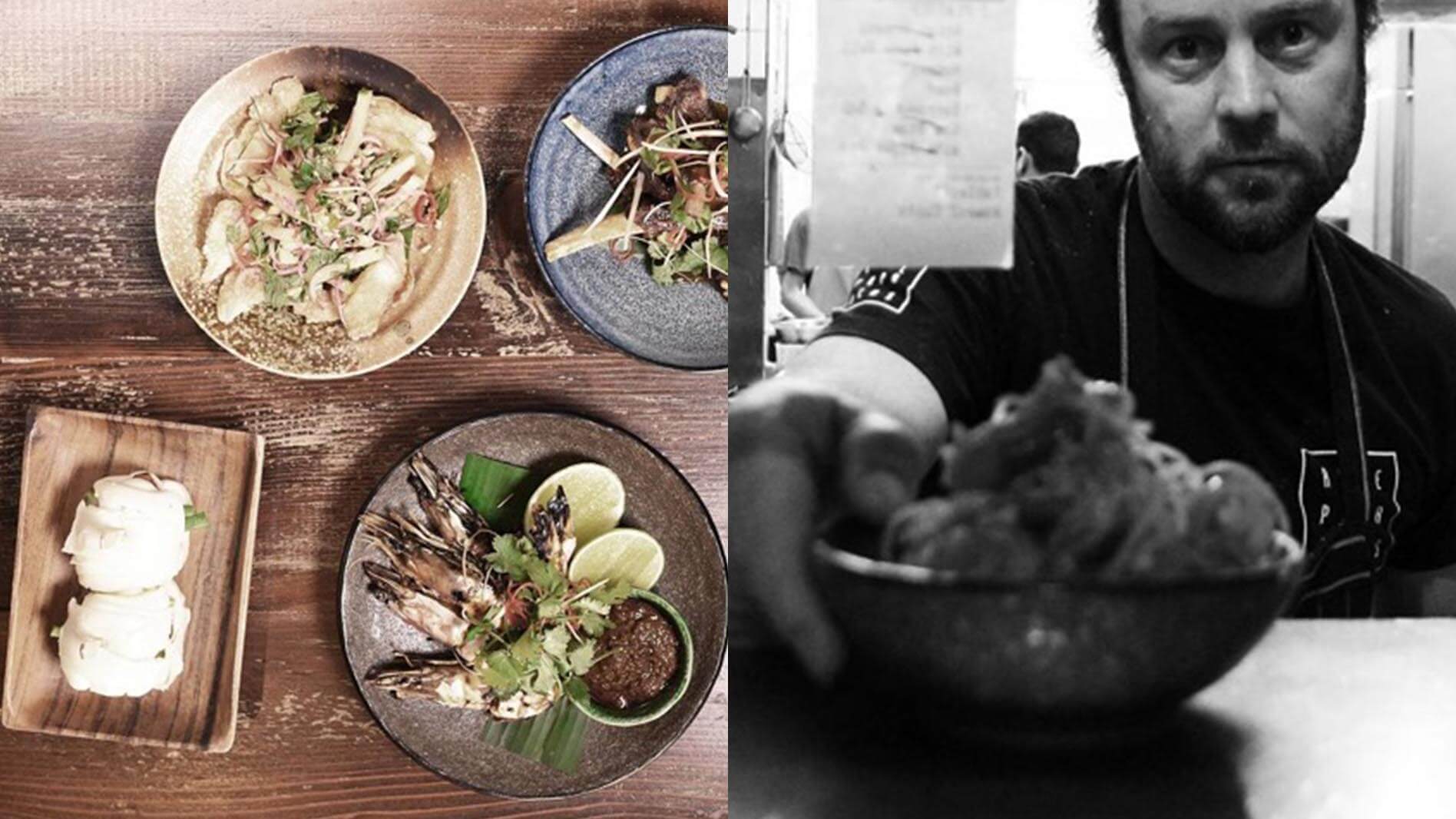Be inspired with recipes created by chefs.
Sign up for updates about products, special offers, news and promotional materials from Goodman Fielder.

Summary
First it was penalty rate cuts and then the slash of the 457 visas. Now industry influences break their silence about the struggles they face in the kitchen as times continue to worsen.
Hundreds of thousands of Australians were faced with a pay cut in March after the current government slashed penalty rates. Now, many more hospitality workers face the possibility of being out of work after the Australian Government announced the scrapping of the 457 visas. As the hospitality industry faces another blow, industry heavyweight, Colin Fassnidge speaks out about the affect it has caused the sector and what the future of hospitality looks like.

My Kitchen Rules’ Colin Fassnidge addresses the hospitality staff shortage in Australia
Tough days, long hours, hard work:
A day in the life of a hospitality worker, whether it’s a head chef, sous chef, apprentice chef or kitchen hand, is summed up as – tough, hard work. As the number of individuals committing to the profession continues to drop, one has to ask, “are Australian’s scared of hard work?” In 2015, the Deloitte Access Economics report found there was a gap of 38,000 staff across hospitality and that the number is expected to increase to 123,000 by 2020.
The latest NSW Government Employment report also found that only 42% of hospitality jobs were filled in 2016, compared to 62% in 2015. While shining light on the issue, Colin explained there was a struggle to meet the high-demand of chefs needed across the hospitality industry. “Number one, there are no chefs,” he said, adding: “Last week on Seek, there was 2500 jobs for chefs…and 700 kids graduated from TAFE in cooking this year. So, if you have that a year, and that a week it simply can’t be met.”
Colin added “Australians aren’t really coming into this game anymore” because of the hard work and long hours. Fellow restaurant owner, Stefano Cirene – Verace Pizzeria in Sydney – echoed the My Kitchen Rules’ judge thoughts, saying the shortage of chefs comes down to laziness. “It’s no longer a glamour job,” he said, adding: “People don’t like the idea of working a 70 hour week in a hot, sweaty kitchen. Young kids are lazy, they are not interested because they know they can get a much easier job elsewhere.”
Shortage in education and skills:
While there is a shortage in the kitchen, reports have also found a drop in enrolments in courses backing the hospitality industry. A Queensland Employment report found that apprenticeships and traineeship enrolments were down 11.9% in 2016, while the completion rate dropped 11.5% between 2015 and 2016. A mirroring Victorian Employment report also found training completions relevant to the chef occupation in 2016 decreased by nearly 30% (1150) compared to 2015. As the enrolments and completion rate continues to fall, Colin explained the courses need an upgrade in a bid to keep the students interested. “
My guys go to TAFE; I grill them every day because they get the extra day off to go,” he said, adding: “But they are learning stuff that is so basic and things that we don’t need or do and what the industry does not do. I don’t think they are getting a-grade [training], and it’s not the TAFE teacher’s fault.” The popular TV chef added: “They [government] just aren’t putting the money into TAFE. I just think it’s the grass roots, you need to get them [young chefs] into TAFE, you need to get a good program going that entices them to go.” Colin added programs where him and other high-ranked and renowned chefs are involved might influence the course for the better. “We already do a bit, Neil Perry does and I do also, and others… I go out to colleges [to talk to classes]. You don’t get paid, you do it for free but you can’t moan about the industry if you aren’t going to give something back.”
While Colin pushes for an improvement with the education provided for hopeful young chefs, Stefano backs the comment, while explaining it took him months to find a skilled restaurant manager. “I had a restaurant manager role advertised for seven to eight months and I didn’t get a single candidate that was suitable,” he explained. “90% of the applicants had no management skills what so ever, and half of them had no hospitality skills.”
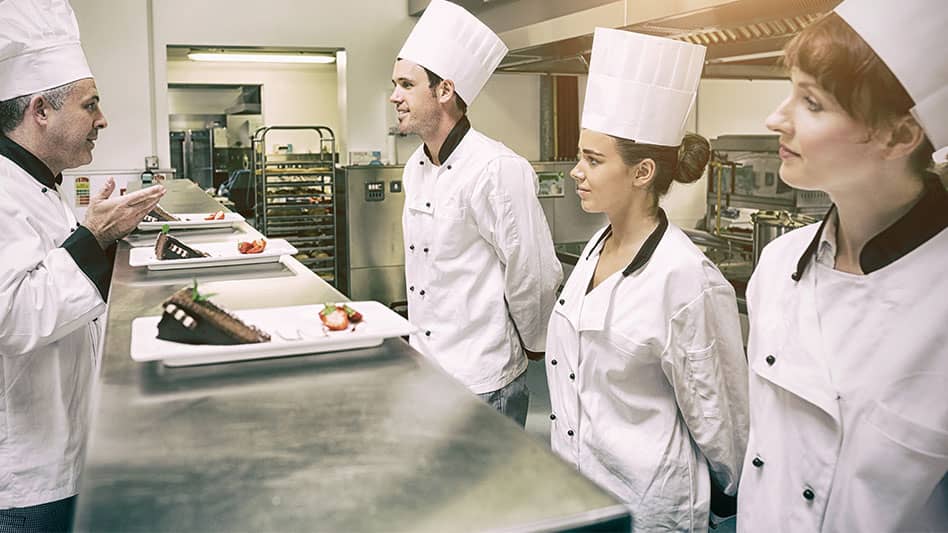
A shortage of chefs in Australia has been increasing over the years
Foreign workers and visas:
As hospitality management struggle to find Australian staff to fill positions in their restaurants, they have become reliant on the 457 visas, which allowed them to sponsor and employ international workers. Though, as of April 2017 business owners have been left trying to find a new way to beat the staff shortage, after the Australian Government slashed the visa. Earlier in the month, Mr Turnbull announced the abolishment of the 457-working visa with the replacement of a new scheme made up of two components. Replacing the current visa in March 2018 is a Temporary Skill Shortage (TSS) visa. The TSS visa will be comprised of a short-term stream of two years, and a medium-term stream of four years.
As part of the new visas, the applicant must have proof of two-years work experience in their nominated occupation and undergo mandatory labour market testing. According to the Department of Immigration and Border Protection, those on the short-term visa will have the capacity for “one onshore visa renewal” while those under the medium-term have the “capacity for visa renewal onshore and a permanent residence pathway after three-years”.
“Visas are going to affect cooks and front of house most,” Colin stated. “Why would you come to Australia? You are just going to come and work your arse off and then there’s no pot of gold at the end of it”. Colin went on to explain that he currently has a number of cooks, as well as his restaurant manager, who have recently been sponsored to work at his restaurant because of the lack of Australian’s interested in working in the highly-demanding field.
Stefano also expressed his anger at the scrapping of the 457 visas, saying foreign staff members will now be “working against the clock”. “We are using the 457s as a way to address the shortage in Australia,” he said. While he is happy the Australian government have addressed the current issue, Stefano insisted they have gone the wrong way about it. “They are creating a bigger shortage. Once they [staff] go back [to their home country], you’re back to ground zero and you have a shortage again,” he explained.
The influence of reality TV:
Despite being a television chef and reality show judge himself, Colin believes TV and movies has influenced the overall view of the hospitality industry. “I think a lot of it has to do with stuff like I do on TV. It has made kids want to be famous rather than be a hard working cook,” he stated. “Being a chef is a sh*t job and now it’s been glamorised [on TV] but it is still a sh*t job. I love it, but you don’t have weekends and you’re not going to earn the money you do down in the mines, but it is a career that is a passport around the world.” Stefano echoed Colin’s thoughts, adding: “The shows have created a bigger reality shock once people try it [hospitality]. Many years ago, there was no perception, until you try it. Whereas now, you watch something on TV and social media and it looks glamorous as they cook in a nice kitchen with a nice jacket. The reality is that it is hard work to create that masterpiece.”

Colin Fassnidge on My Kitchen Rules along with British chef, Darren Robertson
Related Ideas
25th March 2023
The Importance of Mentorships in Hospitality
The hospitality industry is changing at a pace we have never seen before. To make these challenging times slightly easier, a greater emphasis needs to be placed on mentoring and training the younger generation of chefs to ensure the future of hospitality is stronger than ever before.
25th November 2022
Mental Health in Hospitality: How One Conversation Can Save a Life
Renowned chefs Scott Pickett and Massimo Mele talk about their own battles with mental illness and why they are now opening up.
9th March 2022
How to Design a Restaurant on a Budget
It’s no secret that opening a restaurant is expensive. But what if you can do it while sticking within your budget?
